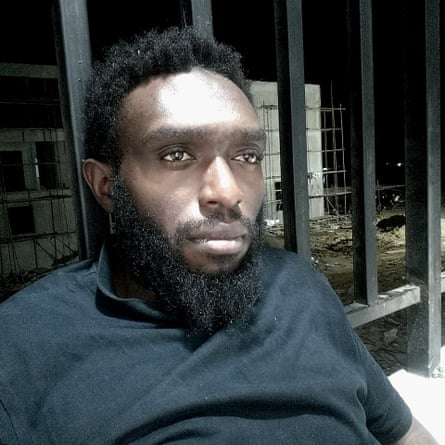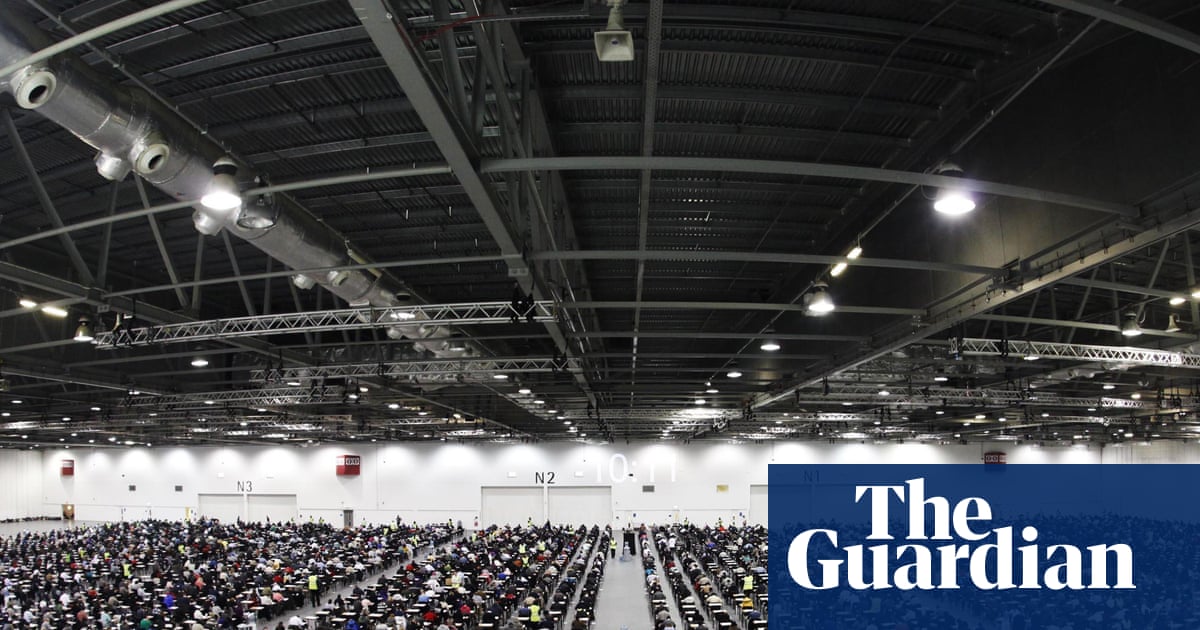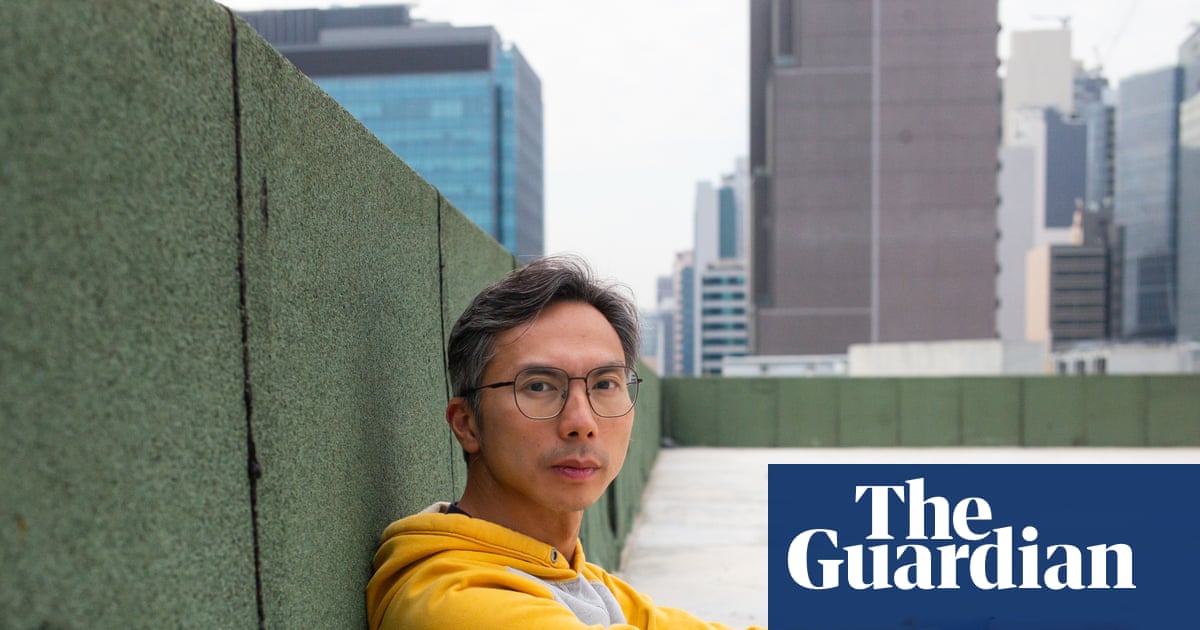Within hours of landing in Bangkok from Nairobi last December to start a job as a customer service agent, Duncan Okindo knew something was wrong. The 26-year-old had sold his cattle, borrowed money from friends and used his savings to pay a recruitment agency 200,000 Kenyan shillings (£1,150).
“I felt it would be good to go outside [the country] and look for money to take care of my family,” says Okindo. “I’d tried hard to get a job in Kenya, but life here had pushed me to the wall.”
But when a van picked up Okindo and six other Kenyans at the airport, the driver collected their passports and told Thai officials they were tourists. After hours of driving, they were herded, tired and bemused, into a boat for a river crossing.
The men were being taken to neighbouring Myanmar, where Okindo found himself inside a walled compound guarded by rebel militia.
He was set to work every day for the next three months, forced to send thousands of messages from fake social-media profiles, posing as a rich American investor to swindle US real estate agents into cryptocurrency scams.
When he failed to reach daily targets, he was beaten, locked inside a freezing-cold room and deprived of food for up to two days. He prayed he would avoid the electric shocks and sexual torture others endured at the hands of a Chinese criminal gang that ran the centre.
“It was hell on Earth,” he says. “I broke completely, to the point of losing hope entirely.”
Okindo, who was finally released from Myanmar’s KK Park compound in April, is among a fast-growing population of Kenyans, Ugandans and Ethiopians trafficked to south-east Asia as criminal syndicates increasingly look to expand their ranks with east African labour.

Cyberslavery compounds have proliferated in Myanmar since the 2021 coup, which upended the country’s already-fractured governance and provided new avenues for illicit activities. Along its border with Thailand, the number has increased from 11 to 26 in the past four years.
The UN estimates that at least 120,000 people are trapped in cyberscam compounds across Myanmar, while trafficking experts and rescue groups report that crackdowns have made little dent in the industry. The centres are run by Chinese criminal gangs, often with the complicity of Myanmar’s junta-aligned Border Guard Force.
Okindo is one of the lucky ones. Finding and freeing trafficked people is an operation involving multiple governments, militias and police forces. The Thai authorities have facilitated the release of thousands of trafficking victims, and east African governments have been increasingly coordinating with Thai officials, who can liaise with the Myanmar military regime and militia forces across the border.
The victims are released into Thai custody only when their government of origin agrees to take responsibility for repatriating them, including paying for flights home.
Since 2020, south-east Asia’s cyber-slavery industry has entrapped hundreds of thousands of people and forced them to perform “pig butchering” – the brutal term for building trust with a fraud target before scamming them. At first, the industry mostly captured Chinese and Taiwanese people, then it moved on to south-east Asians and Indians – and now Africans.

Criminal syndicates have been shifting towards scamming victims in the US and Europe after Chinese efforts to prevent its citizens being targeted, experts told the Guardian.
That has led some trafficking networks to seek recruits with English-language and tech skills – including east Africans, thousands of whom are now estimated to be trapped inside south-east Asian compounds, says Benedikt Hofmann, the UN Office on Drugs and Crime’s representative for south-east Asia and the Pacific.
As public awareness grows in each country, it also becomes more difficult to recruit there. “It’s much more difficult these days to recruit huge numbers of people from, let’s say, India,” says Hofmann. “That’s also why we’re seeing this increase in people from Africa.”
Between January and April, the Kenyan government repatriated 175 citizens from Myanmar, according to Roseline Njogu, principal secretary for Kenya’s state department for diaspora affairs – a big rise on the 150 trafficked Kenyans rescued from across south-east Asia between 2022 and 2024. Hundreds more Africans have returned to other countries including Ethiopia and Uganda.
In Kenya, roughly 80% of people are under the age of 35 and unemployment is high. President William Ruto’s government has promoted labour export programmes as a fix, with a recent survey finding that four in 10 young Kenyans have considered migrating.
Modern slavery recruiters have capitalised on the government’s migration push, says Mutuku Nguli, chief executive officer of the Counter Human Trafficking Trust – East Africa, targeting Kenyans via online job ads, social media and in texts, or by in-person visits to rural areas.
after newsletter promotion

The government “found themselves in the deep end of this situation”, says Nguli. Kenya’s ministry of foreign and diaspora affairs did not respond to a request for comment.
While Thailand has helped thousands of people, repatriating them is expensive and challenging. After taking custody of the workers at the border, Thai officials establish that they are victims of trafficking before releasing them to their home countries, which must be prepared to coordinate and pay for their travel.
When Susan Wafula* was rescued from a Myanmar romance scam centre (where fraudsters trick victims into thinking they are in love with them) in 2022, she moved between four Thai detention centres for a month as she went through legal processes to establish that she had been trafficked and eventually get a ticket home.
“I was in a cell just so I could be determined to be a trafficking victim and get my freedom,” says Wafula, 32. “If I hadn’t, I’d have rotted away there by now.”
Neither Uganda nor Ethiopia have embassies in Thailand, limiting their ability to locate victims in Myanmar, which is engulfed in civil war. Earlier this year, dozens of Ugandans and Ethiopians were stranded at the Myanmar-Thailand border as repatriation efforts stalled.

Scam syndicates have exploited the gaps in east Africa’s diplomatic representation to discourage victims from seeking help, says Jason Tower, of the Global Initiative against Transnational Organized Crime, claiming “their own governments don’t care about them” to make them give up hope.
“At the end of the day, that’s what scam syndicates seek to do: turn these people into money-making machines who are able to function as high-capacity scammers,” Tower says.
But even as east African countries repatriate their citizens, recruitment agencies continue to advertise sham jobs. Okindo and Wafula have shown the Guardian messages from Kenyans who are still considering moving to south-east Asia.
In May, Okindo, who has a diploma in mass communication, sued the recruitment agency and the staff that sent him to Myanmar, accusing them of abetting in his subjection to slavery and human trafficking. A Nairobi court has issued a temporary order preventing them recruiting for work abroad.
Since his return, Okindo has spoken about his experience on TV, TikTok and other social media platforms. He connects stranded victims with lawyers, aid organisations and ambassadors for repatriation.
The goal, he says, is to build awareness of predatory agencies and fake jobs, and to encourage victims to pursue justice.
“I’ve enlightened people a lot,” he says. “Sometimes I fear talking about it, but I say whatever happens, let me save a few people instead of being quiet.”
* Name changed to protect identity

 3 months ago
74
3 months ago
74

















































